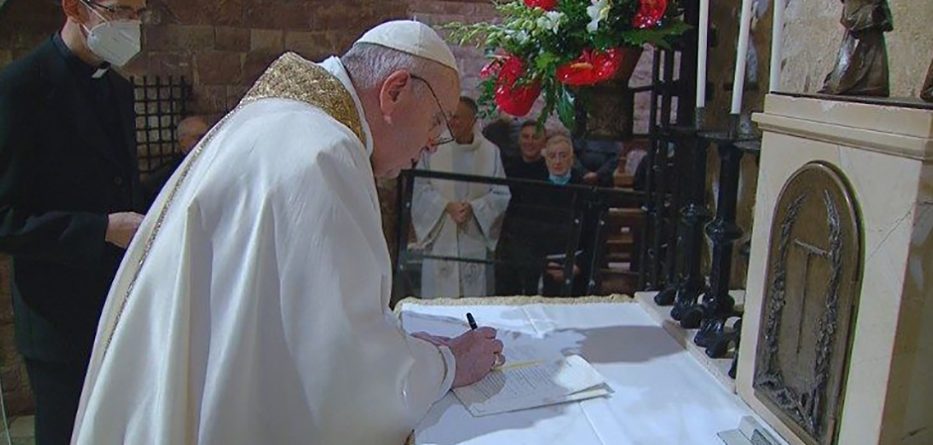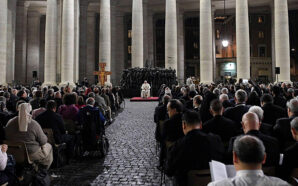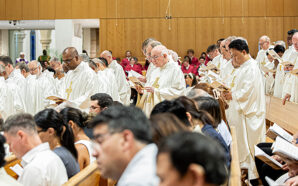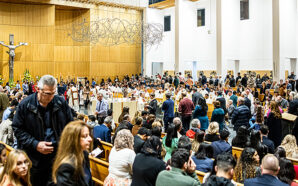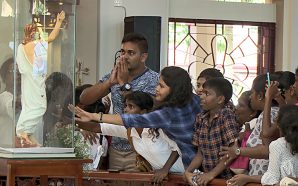The highly-anticipated encyclical Fratelli Tutti was released on 4 October. It is available here on the Vatican website.
It is a very wide-ranging document, touching on many themes. It’s difficult to do the entire thing justice, but here are some quotes on different issues that stood out to me.
Nationalism and globalism
§11. Ancient conflicts thought long buried are breaking out anew, while instances of a myopic, extremist, resentful and aggressive nationalism are on the rise. In some countries, a concept of popular and national unity influenced by various ideologies is creating new forms of selfishness and a loss of the social sense under the guise of defending national interests.
“Globalised indifference”
§30. In today’s world, the sense of belonging to a single human family is fading, and the dream of working together for justice and peace seems an outdated utopia. What reigns instead is a cool, comfortable and globalised indifference, born of deep disillusionment concealed behind a deceptive illusion: thinking that we are all-powerful, while failing to realise that we are all in the same boat.
Politics
§15. Political life no longer has to do with healthy debates about long-term plans to improve people’s lives and to advance the common good, but only with slick marketing techniques primarily aimed at discrediting others. In this craven exchange of charges and counter-charges, debate degenerates into a permanent state of disagreement and confrontation.
Racism
§20. A readiness to discard others finds expression in vicious attitudes that we thought long past, such as racism, which retreats underground only to keep reemerging. Instances of racism continue to shame us, for they show that our supposed social progress is not as real or definitive as we think.
Doctrine and religion divorced from love
§74. Belief in God and the worship of God are not enough to ensure that we are actually living in a way pleasing to God. A believer may be untrue to everything that his faith demands of him, and yet think he is close to God and better than others. The guarantee of an authentic openness to God, on the other hand, is a way of practising the faith that helps open our hearts to our brothers and sisters. Saint John Chrysostom expressed this pointedly when he challenged his Christian hearers: “Do you wish to honour the body of the Saviour? Do not despise it when it is naked. Do not honour it in church with silk vestments while outside it is naked and numb with cold”. Paradoxically, those who claim to be unbelievers can sometimes put God’s will into practice better than believers.
Economic privilege and social safety nets
§109. Some people are born into economically stable families, receive a fine education, grow up well nourished, or naturally possess great talent. They will certainly not need a proactive state; they need only claim their freedom. Yet the same rule clearly does not apply to a disabled person, to someone born in dire poverty, to those lacking a good education and with little access to adequate health care. If a society is governed primarily by the criteria of market freedom and efficiency, there is no place for such persons, and fraternity will remain just another vague ideal.
Immigration
§39. Migrants are not seen as entitled like others to participate in the life of society, and it is forgotten that they possess the same intrinsic dignity as any person. Hence they ought to be “agents in their own redemption”. No one will ever openly deny that they are human beings, yet in practice, by our decisions and the way we treat them, we can show that we consider them less worthy, less important, less human. For Christians, this way of thinking and acting is unacceptable, since it sets certain political preferences above deep convictions of our faith: the inalienable dignity of each human person regardless of origin, race or religion, and the supreme law of fraternal love.
Social Media
§200. Dialogue is often confused with something quite different: the feverish exchange of opinions on social networks, frequently based on media information that is not always reliable. These exchanges are merely parallel monologues. They may attract some attention by their sharp and aggressive tone. But monologues engage no one, and their content is frequently self-serving and contradictory.
World Authority
§172. When we talk about the possibility of some form of world authority regulated by law, we need not necessarily think of a personal authority. Still, such an authority ought at least to promote more effective world organisations, equipped with the power to provide for the global common good, the elimination of hunger and poverty and the sure defence of fundamental human rights.
Politics as Love
§186. It is an act of charity to assist someone suffering, but it is also an act of charity, even if we do not know that person, to work to change the social conditions that caused his or her suffering. If someone helps an elderly person cross a river, that is a fine act of charity. The politician, on the other hand, builds a bridge, and that too is an act of charity. While one person can help another by providing something to eat, the politician creates a job for that other person, and thus practices a lofty form of charity that ennobles his or her political activity.
Dialogue and relativism
§214. As believers, we are convinced that human nature, as the source of ethical principles, was created by God, and that ultimately it is he who gives those principles their solid foundation. This does not result in an ethical rigidity nor does it lead to the imposition of any one moral system, since fundamental and universally valid moral principles can be embodied in different practical rules. Thus, room for dialogue will always exist.
War
§258. We can no longer think of war as a solution, because its risks will probably always be greater than its supposed benefits. In view of this, it is very difficult nowadays to invoke the rational criteria elaborated in earlier centuries to speak of the possibility of a “just war”. Never again war!
Death Penalty
§263. There is yet another way to eliminate others, one aimed not at countries but at individuals. It is the death penalty. Saint John Paul II stated clearly and firmly that the death penalty is inadequate from a moral standpoint and no longer necessary from that of penal justice. There can be no stepping back from this position. Today we state clearly that “the death penalty is inadmissible” and the Church is firmly committed to calling for its abolition worldwide.
Religious Liberty
§279. We Christians ask that, in those countries where we are a minority, we be guaranteed freedom, even as we ourselves promote that freedom for non-Christians in places where they are a minority. One fundamental human right must not be forgotten in the journey towards fraternity and peace. It is religious freedom for believers of all religions.
Religious Violence
§282. We believers are challenged to return to our sources, in order to concentrate on what is essential: worship of God and love for our neighbour, lest some of our teachings, taken out of context, end up feeding forms of contempt, hatred, xenophobia or negation of others. The truth is that violence has no basis in our fundamental religious convictions, but only in their distortion.
Cultural and Religious Roots
§143. I cannot truly encounter another unless I stand on firm foundations, for it is on the basis of these that I can accept the gift the other brings and in turn offer an authentic gift of my own. I can welcome others who are different, and value the unique contribution they have to make, only if I am firmly rooted in my own people and culture.
Authentic Reconciliation
§244. Authentic reconciliation does not flee from conflict, but is achieved in conflict, resolving it through dialogue and open, honest and patient negotiation. Conflict between different groups “if it abstains from enmities and mutual hatred, gradually changes into an honest discussion of differences founded on a desire for justice”.
Mike Lewis is a writer and graphic designer from Maryland, having worked for many years in Catholic publishing. He’s a husband, father of four, and a lifelong Catholic. He’s active in his parish and community. He is the founding managing editor for Where Peter Is.
With thanks to Where Peter Is, where this article originally appeared.




